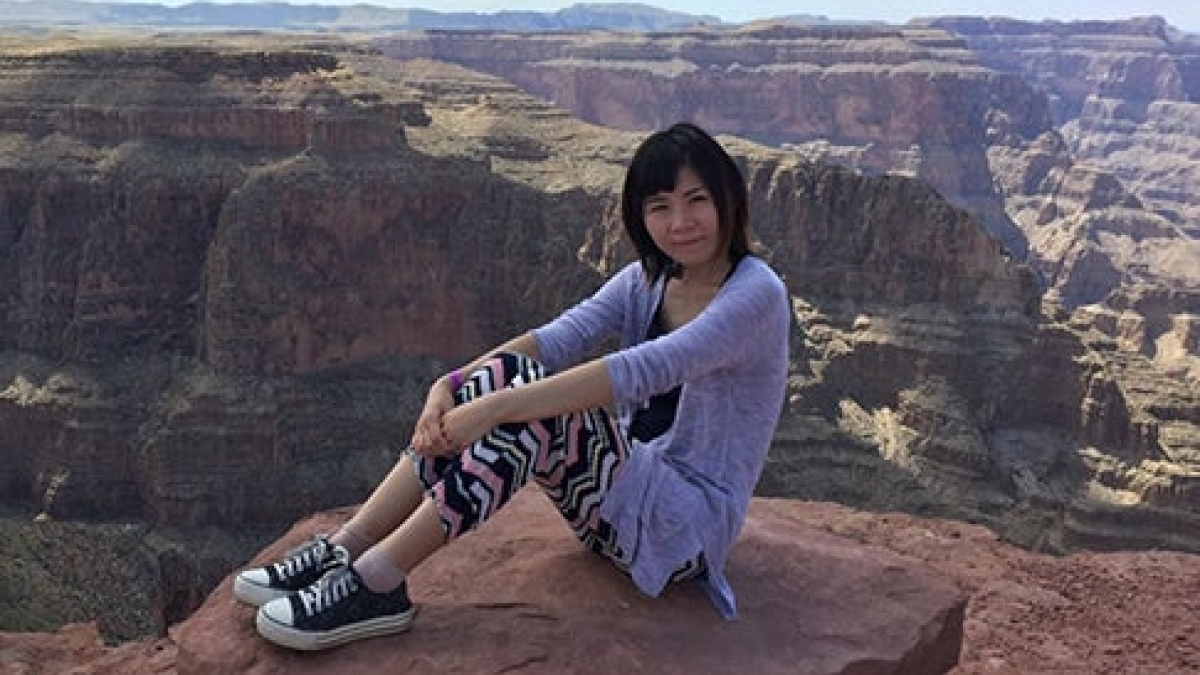Health care education goes beyond borders

During her time at ASU, Lihong Ou gained the experience and education to rethink and redefine what quality health care can mean.
When we think about modern health care challenges, we tend to think in terms of our own communities. However, while every community has its own set of unique problems, the solutions and best practices can often be applied across the globe.
Lihong Ou started her health care journey in China but soon realized that furthering her education in a different culture could bring about improved results at home.
This spring, she'll graduate from the College of Nursing and Health Innovation, earning a Master of Science in nursing with the nursing educator concentration.
In addition to being prepared for her specialty role in health care, Ou gained the experience and education to rethink and redefine what quality health care can mean.
Here, she expands on the most influential parts of her program, shares who helped her along the way and what she plans to do with her new degree.
Question: Tell us a little bit about your background and how you initially became interested in health care.
Answer: I came from Shanghai, China, and I worked as a clinical registered nurse in my country for years. The reasons why I became interested in health care (is) health care is a booming industry and it offers good career prospects. Living a healthy life is the foundation of everything in your life. There is a proverb: Health is "1" and everything else is "0." Without health — if health is “0” — it doesn’t matter how big a number there is for everything else, the value is meaningless.
Q: What made you want to pursue this degree?
A: I had the opportunity to be immersed in hospital environments that provided international health care services when I was working in China. I always felt amazed at the health care difference between countries and wondered what the health care system and culture would be like on the other side of the globe. Besides, as health care is constantly evolving and changing with the growth of nursing research and emerging technologies, I felt that it is hard to stay current on the latest trends, knowledge and skills, so I decided to pursue an advanced degree in nursing in the U.S.
Q: What are two key lessons you learned from this program?
A: I have learned a lot from the nursing education program. One of the key lessons for me would be the more I learn the more I don't know. So I feel it is important to be a lifelong learner, not only in depth of knowledge but also in the breadth of knowledge. For example, interprofessional and interdisciplinary collaboration in nursing, as well as nursing education, are being addressed more than ever. The increased awareness, understanding of the thoughts and experiences from other fields of study will contribute to my own field of study.
Another key lesson is that the learning process is a journey of self-discovery and self-transformation. In this program, students explored the benefits and strategies of the learner-centered approach. I was encouraged to take responsibility for my own learning and to explore my own learning needs and interests. This program opened a door of challenges and opportunities, what I struggled and achieved all became part of my growth.
Q: What are your plans now that you’ve graduated?
A: I’ve applied for optional practical training after my graduation. I thought it might be helpful for me to gain some on-the-ground experiences in which I might find more ideas and inspiration. I also think about pursuing doctoral study and wonder how the world will look different to me by the time I achieve it. It is always attractive to me since it is the most advanced degree; it helps me to get closer to the top of my study field, equips me with more capability to manage knowledge and enables me to explore new, exciting possibilities.
Q: Is there anyone in particular that really helped you reach where you’re at today? Friend, faculty, family?
A: They were all important in supporting me in reaching where I am at today. My husband and I left everything behind and came all the way here. He accompanied me throughout the whole program. We shared all the moments and went through the difficult times together, whether it was the fear of vulnerability I struggled to overcome or the happiness of my achievement. He was always there to be my strongest backer.
I also want to express my sincere gratitude to my faculty who played an extremely critical role in helping me to be successful in the program. This was a very demanding program for me, and the guidance and support from my faculty made a huge difference to my learning experience. Their encouragement, patience and kindness empowered me to move forward, achieve more and persevere through challenges.